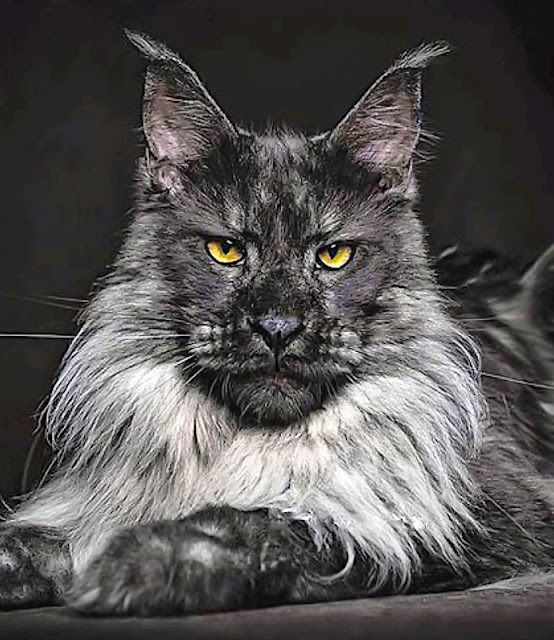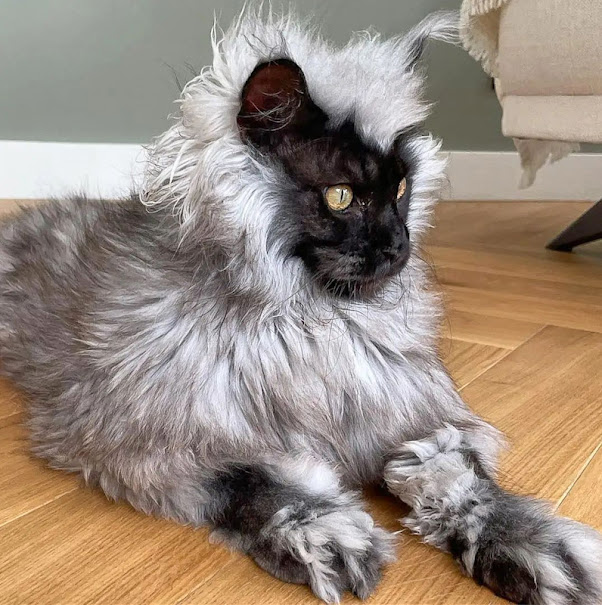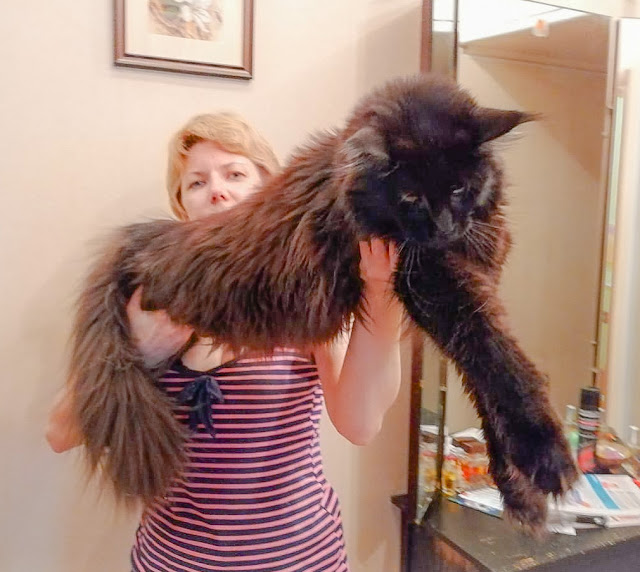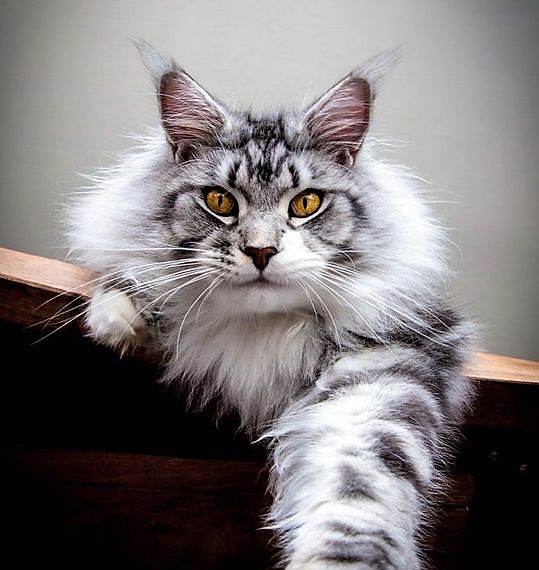I'm allergic to my Maine Coon. Should I wash him?
You may know that the major allergen which produces an allergic reaction in about 10-20% of people is Fel D1. There are lesser allergens but that's the major one. It's called a thermostable protein. And it is found in the saliva, anal glands, sebaceous glands, skin and fur of cats. They now believe that it is the sebaceous glands are not the saliva which is the main production site of this irritating allergen.
 |
| Fel D1. Image: MikeB |
As it is deposited on the fur of cats either when they groom themselves or by the secretions of the sebaceous glands, it may cross the minds of cat owners that by washing their cat they may eliminate the allergic reaction from which they suffer.
There are quite a number of people who live with domestic cats despite suffering from an allergy to cats. They find a way around the problem. And there are ways but washing their cat is not one of them.
Very temporary relief with downside
Washing cats does reduce the amount of Fel D1 on the skin and fur of a cat but the effect doesn't last that long. The amount of Fel D1 returns to its original level in about two days.
We also know that this this allergen is attached to dander which is dried saliva and oils on bits of skin and of hair. This dander flies off into the room and is deposited on furniture. A survey found that the allergen was detected in 99.8% of American homes.
It is totally ubiquitous in American homes. Even homes where there are no cats! And in the cat and office. People are walking it in on their clothes.
This last point incidentally points to the pointlessness of cleaning the home to remove Fel D1 from surfaces as the benefit would be too short-lived.
But washing your cat does not remove Fel D1 from the ambient air for any kind of lasting period. You get back to the way you were within about 24-hours. So, washing your cat only very temporarily removes the allergen from their fur and also very temporarily removes it from the air in your home.
Washing your cat is therefore of little benefit in terms assisting you to substantially alleviate or even eliminate your allergic reaction to your Maine Coon.
Microbiota
Also, the skin of a domestic cat is home to millions of bacteria which are part of the skin microbiota. It is similar to gut microbiota, and it is part of a cat's anatomy. They help to protect the cat against invading pathogens. To entirely wash a cat is unwise unless you really have to do it.
Hypoallergenic?
I should add that no Maine Coon is hypoallergenic. Male cats tend to produce more of the allergen than female cats and male, unsterilised cats produce more than male sterilised cats. If you are allergic to cats, it is possible that adopting a female may be slightly beneficial.
Hypoallergenic cats are a myth. Although the production of the allergen varies considerably between individual cats. The best plan is to meet the cats and adopt one to which you have the least reaction. And it should be a female.
There are negatives to bathing a cat such as removing the natural oils and scent. This may have a knock-on effect of other cats no longer recognising the bathed cat.
The information source is a study: An update on molecular cat allergens: Fel d 1 and what else? Chapter 1: Fel d 1, the major cat allergen. By B. Bonnet and colleagues published on BMC Part of Springer Nature.










Comments
Post a Comment
Please share your Maine Coon experiences.